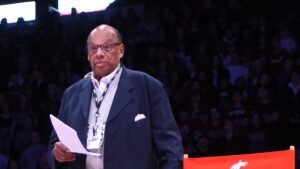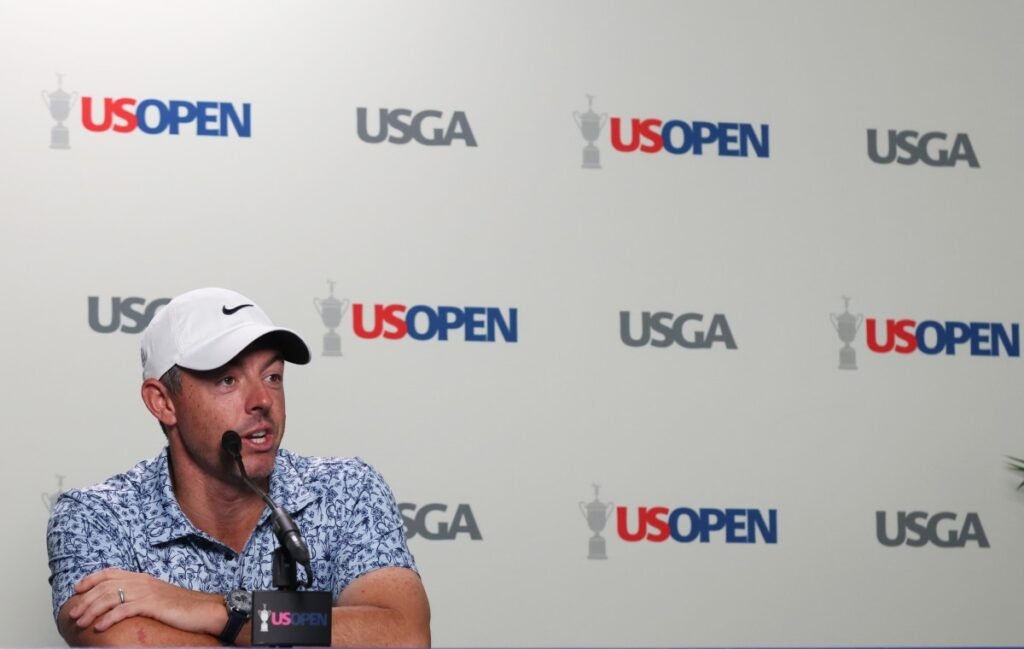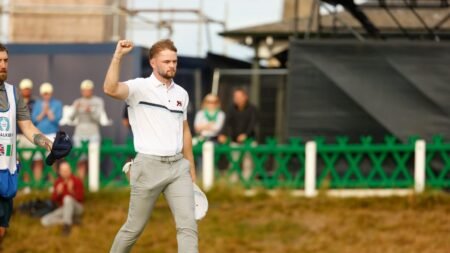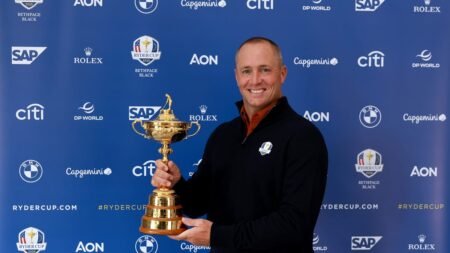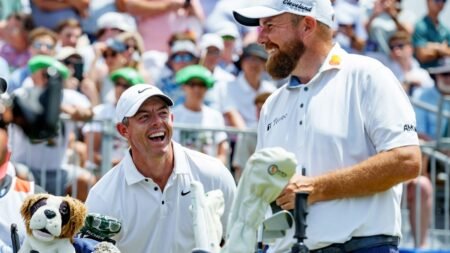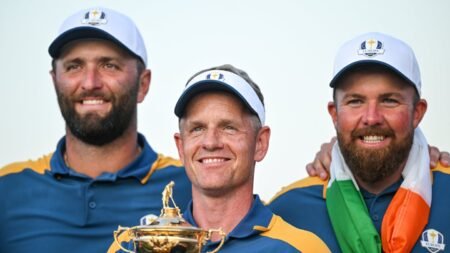The Story with Rory: McIlroy’s Post-Masters Struggles Show Human Side of Greatness originally appeared on Athlon Sports.
The tears streaming down Rory McIlroy’s face as he embraced his caddie and long-time friend, Harry Diamond, on the 18th green at Augusta National in April told the story of an emotional 10-year journey. After a decade of heartbreak and mounting pressure, the Northern Irishman finally captured the one major championship that had eluded him. His playoff victory over Justin Rose at this year’s Masters didn’t just add a green jacket to his wardrobe — it meant that he was now part of the game’s most exclusive club, career Grand Slam winners.
Only five other men in the modern era have achieved this feat: Gene Sarazen, Ben Hogan, Gary Player, Jack Nicklaus and Tiger Woods. McIlroy became the sixth, and at 36, he joined an elite fraternity that seemed destined for him yet had remained frustratingly out of reach through multiple close calls at Augusta.
Surprising Struggles Follow Historic Win
But what happened next shouldn’t surprise anyone who understands human psychology, even if it has puzzled golf fans and critics alike.
Since that emotional win, McIlroy’s play has been on quite the rollercoaster ride. He tied for 47th at the PGA Championship at Quail Hollow, a course where he had previously won four times.
He missed his first cut of the year at the RBC Canadian Open, shooting rounds of 71-78, something that left fans scratching their heads.
At the U.S. Open, he managed a tie for 19th but looked disinterested, almost detached from the competition that once drove him to greatness. His performance at Oakmont was perhaps the most telling of this stretch since Augusta.
Post-Achievement Depression is a Real Thing
His play since the Masters exposed a phenomenon that psychologists have studied extensively for years. While sports fans may struggle to understand what’s going on with their favorite champion, what science calls post-achievement depression, also known as the post-reward resetting phenomenon, is indeed a real phenomenon.
A real psychological condition that affects everyone, from Olympic athletes to college students graduating and professionals finally landing their dream job. You may have experienced this yourself in your life.
What happens in the brain releases dopamine as a reward during the pursuit of a goal, and this level can drop significantly after the goal is achieved, leading to a sense of emptiness. When someone’s identity becomes heavily tied to pursuing a specific accomplishment, achieving it can create an identity crisis about who they are beyond that singular focus.
McIlroy spent the better part of a decade chasing the Masters. Every April brought renewed hope but also inevitable disappointment. The pursuit gave his career structure and meaning. Now that the chase is over, it’s entirely natural that he would experience a psychological letdown, regardless of how much money he has in the bank or how many other tournaments he’s won.
Parents’ Sacrifices Shaped Champion’s Drive
Consider McIlroy’s journey to this point. Born in Holywood, Northern Ireland, to parents who worked multiple jobs to fund his golfing dreams, Rory was introduced to the game at age 2 with a set of plastic clubs. His father, Gerry, worked 100-hour weeks, cleaning toilets in the morning, tending bar at the golf course during the day and working nights at a sports club. His mother, Rosie, worked night shifts at a factory while caring for Rory during the day. They rarely saw each other during those early years, as they sacrificed everything for their son’s talent.
That upbringing instilled in McIlroy a work ethic and humility that have served him well throughout his career. But it also created enormous internal pressure to justify his parents’ sacrifices. The Masters represented the ultimate validation of their belief in him, the final piece of a puzzle they started assembling when he was barely old enough to walk.
Now that the puzzle is complete, McIlroy is experiencing what many high achievers face: the arrival fallacy, the false belief that reaching a particular goal will bring lasting happiness. The reality rarely matches the imagined expectations, leaving even the most successful people feeling surprisingly empty.
Even Champions Remain Human
This is where perspective becomes crucial. McIlroy isn’t broken or finished or past his prime, despite what some critics might suggest. He’s human. He’s a father to a young daughter, a husband navigating the complexities of marriage and a man reflecting on the achievement of his life’s greatest goal. The fact that he happens to be extraordinarily gifted at hitting a small white ball doesn’t exempt him from the psychological realities that affect everyone.
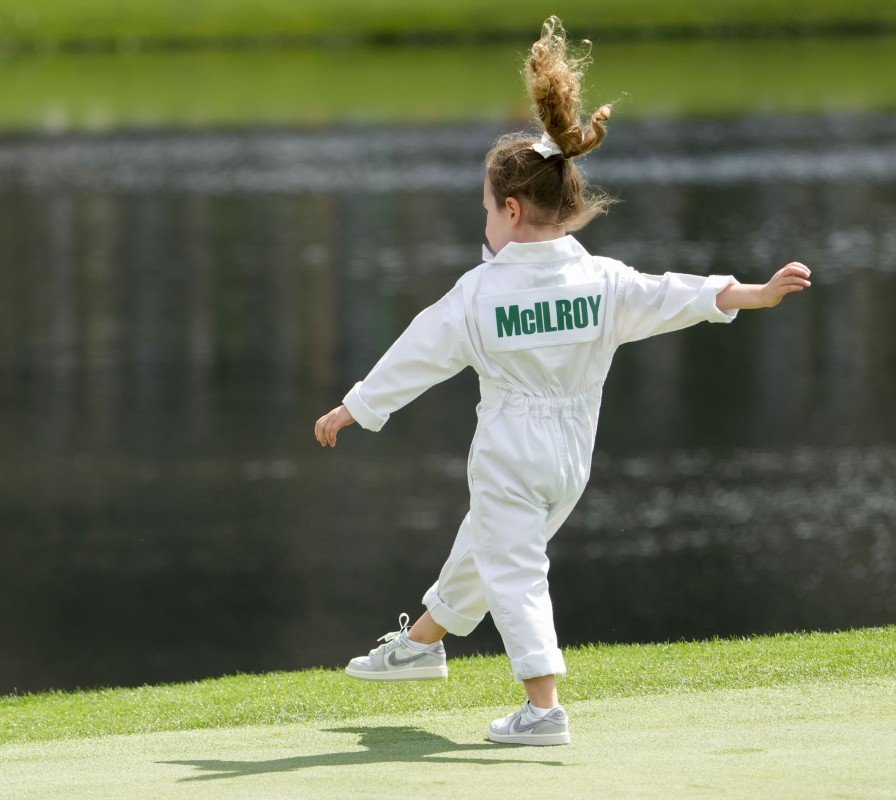
Open Championship Offers Chance for Reset
The Open Championship at Royal Portrush stands to offer McIlroy something he desperately needs. Playing in front of his home crowd in Northern Ireland, where his journey began, could provide the emotional spark needed to reignite his competitive fire. He’s spoken about how an Open at Portrush represents one of the few remaining mountains he wants to climb.
But if he struggles there, too, it won’t mean he’s done. It will simply mean he’s still human, still processing one of the sport’s greatest individual achievements. At 36, McIlroy has years of elite golf ahead of him. He’s already proven he belongs among the game’s immortals. Everything else is just a bonus.
The golf world should cut Rory McIlroy some slack. He’s earned it, and more importantly, he’s shown us that even our sporting heroes are beautifully, imperfectly human.
Related: What’s Not to Like About Robert MacIntyre? My Pick to Defend at the Scottish Open
Related: LPGA Tour Enters Pivotal Three-Week European Stretch
Related: Gary Player Reflects on Royal Portrush’s Return to The Open Championship
This story was originally reported by Athlon Sports on Jul 9, 2025, where it first appeared.
Read the full article here
